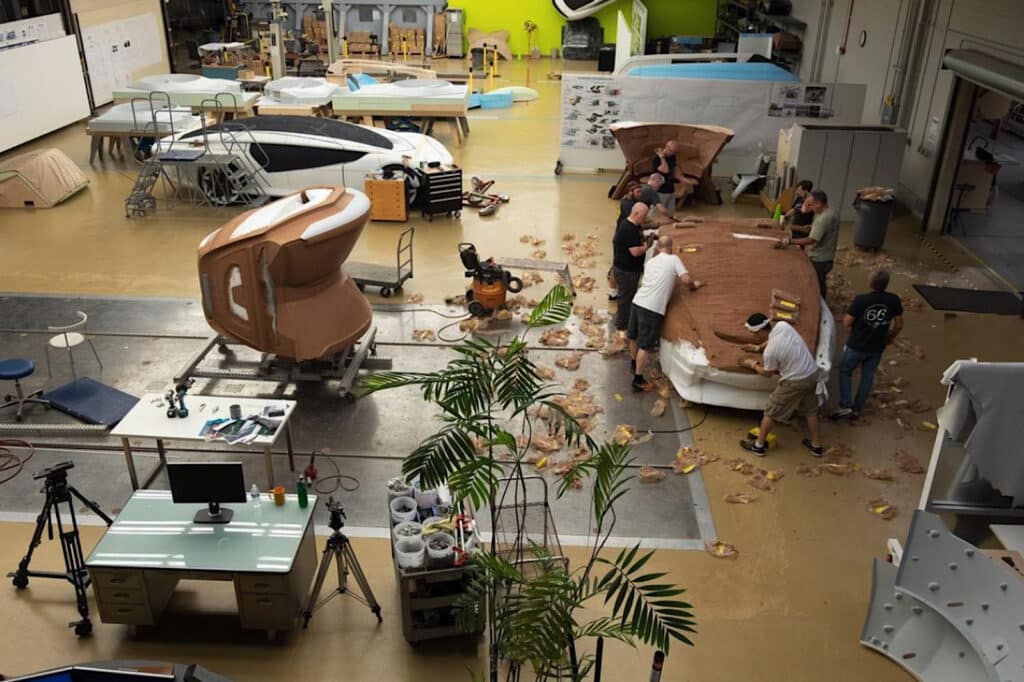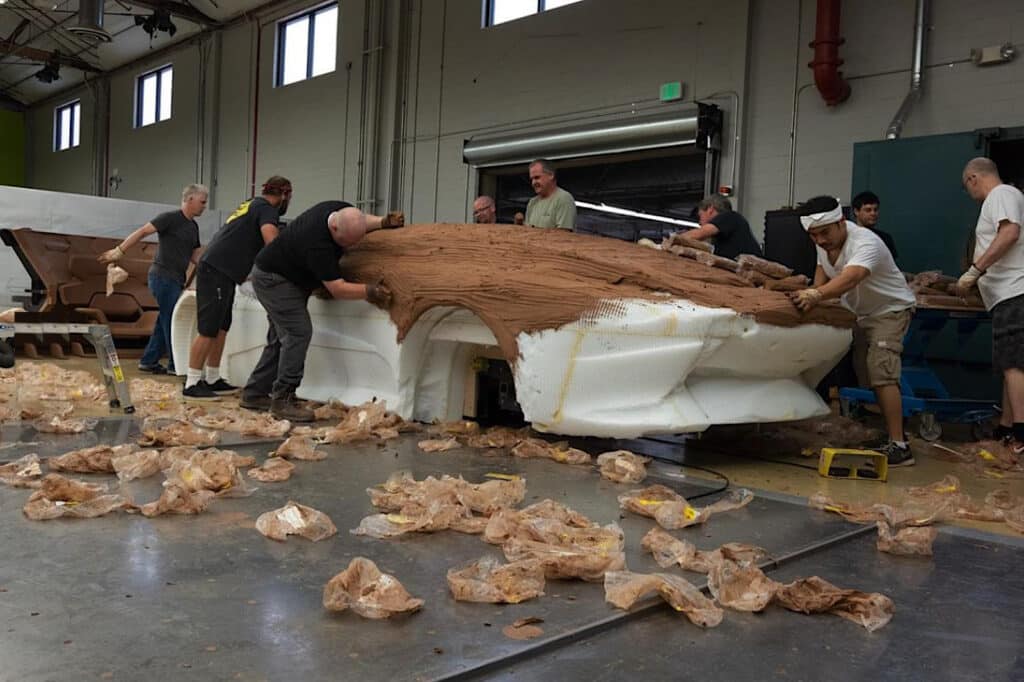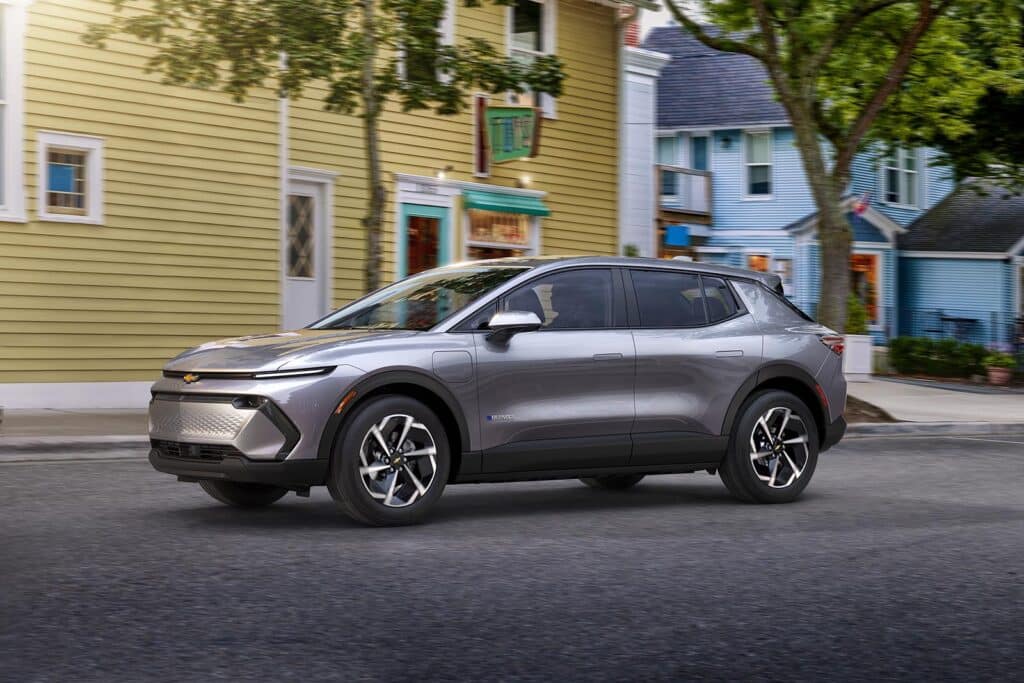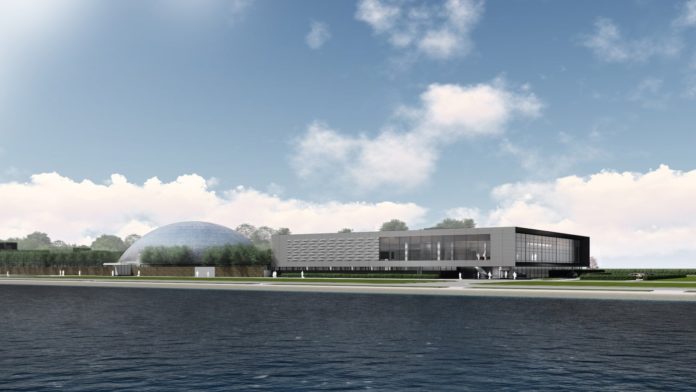It’s always a good day when we get invited to tour the GM Design Center in Warren, Michigan, so when we got the invitation, they didn’t need to ask us twice.
Our very full day included treats like touring the office of Michael Simcoe, GM’s Senior VP of Global Design. That office, by the way, was previously occupied by legendary designers Harley Earl and Bill Mitchell. That’s super cool, but the real meat and potatoes of the day came in a series of tours of the various studios in which designers shape the next generations of GM vehicles.
Through the course of the day, we visited with the studios for Advanced Design, Cadillac, Chevrolet, Buick, GMC and the new “Affordable EV” studio. Electrification was the theme that ran through everything, including some few things that GM asked us to keep confidential, at least for now.
In other cases, we literally got a peek at a corner of a prototype vehicle under a sheet. Let me assure the off-road enthusiasts in our audience, based on the little bit we saw, something truly fun and impressive was under the rest of that sheet. Additionally, we saw finished concept vehicles, clay models and even carved styrofoam mock-ups.

Affordable EVs
The common thread was electrification, and the most exciting part of the day was in Chevrolet’s Affordable EV workspace. This is where GM is really working on game-changing products. Chevy already boasts the most affordable EVs on the market in the Bolt and Bolt EUV, but more are on the way.
The Chevrolet Equinox EV is a compact SUV that’s going to start at $30,000, and the team working on the next several models is planning to make the new generation of EVs even more affordable and compelling.
“You can’t just de-content things, so we have to find different ways [to save costs],” said Michael Pevovar, director of Chevrolet affordable EV and crossover design. “That’s in manufacturing and making our design processes quicker to limit the amount of time we spend on it. It’s a matter of combining parts and pieces. It all has to be affordable, but how does that translate into the aesthetic? It can’t be affordable and not appealing.”
A new mini truck, maybe?

Inside the studio we saw several models of potential subcompact crossover EVs with low roofs and sporty demeanors, as anyone would expect from an affordable vehicle aimed at younger buyers. But there was also one model that evoked tremendous interest: a subcompact pickup truck that could potentially wear Chevy’s bow tie one day soon.
“We call it the running shoe,” Pevovar said. “It’s exactly what it looks like. This is the type of model that we’ll make to get opinions and understand if it makes sense.”
The model was a two-door pickup carrying a short bed covered with a tonneau. If it came to market in anything like the form we saw, it would be smaller than the Ford Maverick or Hyundai Santa Cruz, and would defy the current four-door truck fashion with a traditional two-door single cab design.
“That’s one of the things that we try to understand from an affordable architecture standpoint,” Pevovar said. “Where’s the limit of appeal versus affordability and how much can be added to give people choices in what they want. Part of the idea here is not to just create one vehicle that’s inexpensive or affordable, it’s to create multiple vehicles that fill different needs and have the breadth to satisfy different wants.”

Expanding investment in design
Towards the end of our day, we walked over to GM’s new Design West building, a massive structure built alongside the original Eero Saarinen-designed building from the 1950s. GM went to some effort to preserve the architectural touches that Saarinen put into the original, while outfitting it for modern design needs.
The main hall of the building is about 300 yards long, a vast open space with movable tracks for the machine tools that shape the clay models. Looking out above the main floor are spaces for design collaboration, virtual imaging, and satellite office space to bring in engineering and manufacturing staff to collaborate with the designers. Through it all, soaring clerestory windows bring natural light into the working spaces. All told, the new Design West building creates more than 1 million square feet of space.
No one on the tour knew exactly how much it has cost to create this design center, but the building would easily run into hundreds of millions of dollars. In all, the corporation has invested well over $1 billion in the Warren Tech Center during the past several years.

